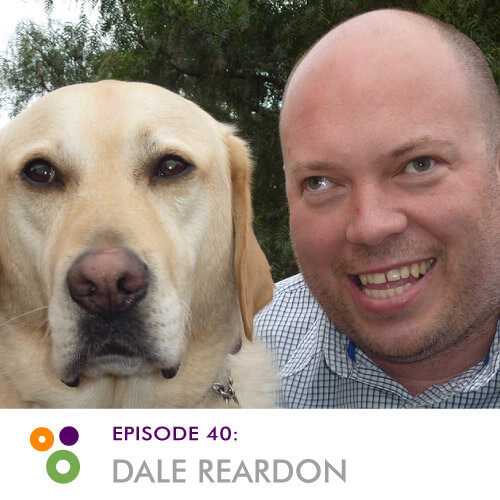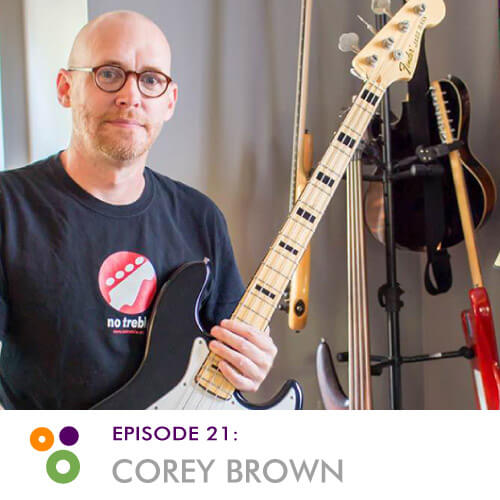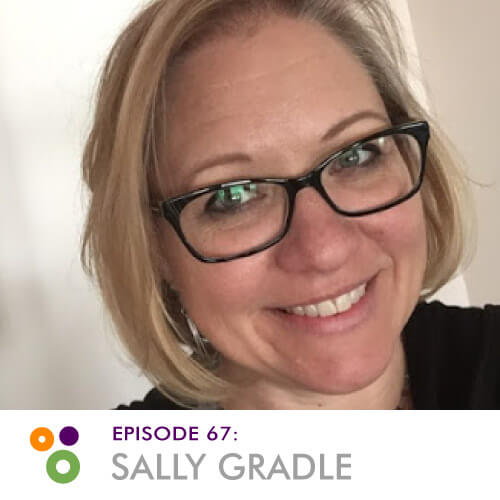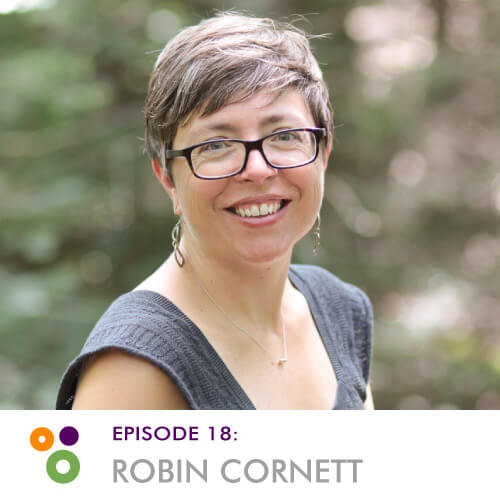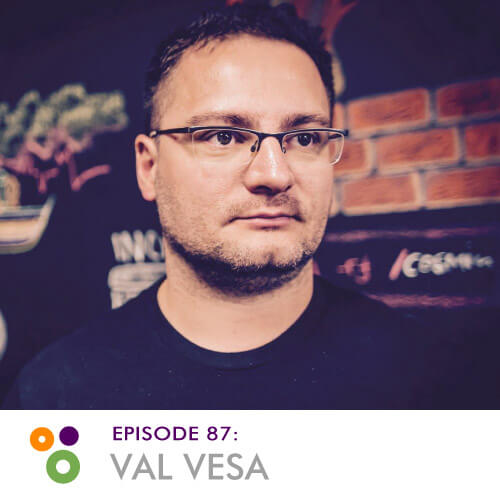Episode 59: Dan Beil

Podcast: Play in new window | Download
Subscribe: RSS
Introducing Dan Beil
Dan Beil has been working with WordPress since about 2009 and has loved every minute and seconds of it. He has been a freelancer, in-house developer, and remote employee.
Show Notes
Website | AddActionDan
GitHub | dannyb195
Twitter | @add_action_dan
Episode Transcript
Tara: This is Hallway Chats, where we meet people who use WordPress.
Liam: We ask questions, and our guests share their stories, ideas and perspectives.
Liam: Welcome to Hallway Chats. I’m Liam Dempsey.
Liam: And now the conversation begins. This is episode 59.
Tara: And I’m Tara Claeys. Today, we’re joined by Dan Beil. Dan has been working with WordPress since about 2009 and has loved every minute and seconds of it. He has been a freelancer, in-house developer, and remote employee. When he’s not coding, Dan spends time working on his house and playing with his two Siberian Huskies. Hey, Dan. Thanks for joining us.
Dan: Hey, thanks for having me.
Liam: Dan, It’s our pleasure. Appreciate it, thanks for making the time for us today. Can you tell us a little bit more about yourself, more than what Tara just shared, please?
Dan: Yeah, definitely. I’m born and raised in Minnesota, currently living in Minneapolis, and I love it. A fun fact about me is that I have not driven my car since 2016. Minneapolis is a pretty small city, pretty easy to get around with buses, and taxis, or Ubers, or Lyfts, or whatnot. That’s really nice, I’m about three miles south of downtown so always a bunch of fun stuff to do and good restaurants to eat at, and meetups and whatnot. It’s always fun.
Tara: I’ve heard great things about Minneapolis but I’ve never been. Was this a conscious, intentional decision not to drive a car there? Are you trying to be good to the environment? What’s your motivation for that?
Dan: To be honest, everything that I actually need, like a grocery store, a convenience store is within three blocks of my home. So I can just walk to them and grab whatever I need, which is nice. I have kind of a heavy-duty wheelbarrow that I can take to the hardware store to buy dog food or anything heavy.
Liam: I like that, that’s really cool. Let me ask you this, because I know if I was in your situation where I could afford logistically not to drive, I wouldn’t do anything to my car until I needed it. And then if I hadn’t driven it in 18 months, it wouldn’t start. Do you have it up on blocks, preserving the tires, and you drained the oil, disconnected the battery, and did all the prep work so that your car is ready to go when you need it?
Dan: You know what? It actually happened really unintentionally so no, I haven’t done any of that stuff. The battery’s dead, it won’t start right now, so I need to get a new battery for it, just in case the apocalypse happens and I need to-
Liam: – drive south in a hurry, right?
Dan: Yeah.
Liam: I was in Minneapolis for a couple of conferences, a couple of years in a row, and I have some relatives that live up, not in Minneapolis proper but greater Minneapolis. I was really surprised, we went to a fantastic restaurant and it was probably not far from where you live. Because I know that we were south of the downtown area and it was literally a very short row of retail shops in a suburban neighborhood and there was this really fantastic latino restaurant, right next to an antique store, and right next to something else. I was really surprised by the big city feel of the suburbs in the sense that in a big city, you’ll have all sorts of different shops, smack dab in the middle of a retail place. But in most suburbs, you have the strip malls and you have the big box stores out of the way. Is Minneapolis kind of generally like that or they intersperse kind of those, I’ll call them, cultural diamonds? Those nice little finds that you normally would get in the city but you might find it in the suburbs?
Dan: Yeah, I think so. My neighborhood is very, very mixed race, which I love. Because you run into all types of foods, and just different experiences on a daily basis. There’s a high African-American population, high Somali population, high Mexican population in my neighborhood, so you get all those cultures interacting together and the entrepreneurs that come along with that, whether it’s restaurants or stores or whatnot. I love that experience. I think that everybody should experience that at some point in their life if they haven’t.
Tara: Yeah, I’ve heard that about Minneapolis. It’s very culturally wealthy there. I’m glad that you live in a place where you can enjoy that. Dan, can you tell us a little bit about what you do with WordPress in Minneapolis? I think there’s a good community there for WordPress but are you involved in that? Tell us a little bit about your story and how you got involved with WordPress?
Dan: Definitely. It’s actually funny. I randomly went to my first WordPress meetup and I gave a talk about combining BuddyPress with s2Members.
Liam: Membership plugin, yep.
Dan: Yep. Which, by the way, is not an easy thing to do. I’m mostly a back-end developer. I also do HTML, CSS, Javascript for them as well. But Kiko Doran, if you’re familiar with him, happened to be–
Liam: Yep, that’s why I was in Minneapolis, going to the conferences that he and Josh put on.
Dan: Nice. He was in the audience and he was one of the lead organizers for WordCamp that year. After my presentation, he said, “Dan you have to give this talk at WordCamp.”, “Okay.” I gave the talk and went to the speaker dinner, met some people in the community that really encouraged me to continue speaking and doing stuff like that. Over the years, I’ve done about 13 to 15 talks, continued to be primarily a back-end developer, always a remote worker. I’ve done a lot of dead architecture stuff, a lot of custom post types.
Tara: Are you self-taught or did you study development in school? How did you find yourself doing development in the first place and finding WordPress?
Dan: That’s a great question, thank you. My formal education is actually in applied sociology. I actually did half of my master’s in sociology as well. I have a certificate in non-profit leadership. No formal education in coding, but through my bachelor years, I just kind of tinkered around with HTML and CSS and made little sites that never really did anything. Since then, I dropped out of my master’s program for various reasons, and I started playing poker full time for about eight months.
Tara: Wow, that’s really interesting.
Dan: Yeah. During the good times, I just walked the ground with three grand on me and not even care about it. During bad times, it would be 10 bucks. [laughter] It’s kind of a hard life to live well.
Tara: Yeah, you see it in movies, but it’s actually a real thing.
Dan: Yeah, no, that’s basically how it goes. But I met a lot of people. You go to the casino every day, you’re playing poker with the same people every day, you make friends and things like that. And one of them asked me to make a website for them. I think I charged him 500 bucks for the first website. Other people kind of found out and they started building network around being a developer. I started making more money building websites with WordPress than I was playing poker. That was kind of a pretty easy decision to make.
Liam: Let me ask you, were those initial WordPress builds, was that you doing child-teaming work or were you already at that point getting into customization, or were you just kind of website production where you find the team and maybe you tweet this and maybe you tweet that, but also you just put it together because you know how to do that. Where did you get started with WordPress?
Dan: At the beginning, a lot of it, I think, is a pretty typical story of installing a theme and doing some type of custom CSS work to make it work for them. I don’t think I even knew what a child team was at that point. It was a lot of implementation work, I guess I would say.
Liam: Cool. I imagine you probably hacked core at some point, that seems to be what all of us do when we get started, until it gets overwritten for the third time and we say, “Maybe we shouldn’t do that.
Dan: I’ve never hacked core. I have hacked themes.
Liam: Well, then you’re better than I, that’s for sure. I hacked both. [laughter] Dan, you’ve talked in the intro that you worked for agencies, you talked about working in freelance, that you’ve always worked as a remote employee. I wonder if you can just share your experience about maybe some of the plusses and some of the minuses of both freelancing versus in-housing always as a remote employee. Remote worker is the constant. What’s been the difference for you between the two, between freelancing and in-housing, and what’s worked and what hasn’t?
Dan: Yeah, that’s a great question. To start with freelancing, there’s an unknowable to freelancing. If a project wraps up and you don’t have another one lined up, you don’t really know what’s coming up. And that can be very stressful because you’re doing probably all the development, maybe some of the design, marketing yourself, doing your own taxes, basically running your own business by yourself. And most of those things, I actually don’t like doing. I want to be developing, I want to have client contact and have a say over how the project direction goes, which you don’t always get when you’re freelancing. When it comes to going in-house, all of that is lifted off your shoulders, on top of the fact that you get to work with a team– I’ve had the pleasure to work with [inaudible 22:25], get to know all of the partners at that company and many of the developers. You just learn so much more when you’re working with a team and going through official code reviews. I still joke with Joe Casabona about how he blocked my CSS because I didn’t put the properties in alphabetical order.
Liam: What do you mean he blocked it? He commented it out so it didn’t go into production? Because that sounds like Joe. [laughs] But in a good way, I love him.
Dan: No, definitely in a good way. Something goes through a formal code review and somebody else on the team picks it up and he says, “No, this is not going live until you make this change.” It’s kind of honor system. It was funny because I was actually his superior at the time.
Liam: So that group, that camaraderie, that cohort of learning, I get that. It’s very easy to get dependent on that in a good way. It’s like I’m banging my head against this bit of coal for two hours so I can ping somebody on Slack and, “Hey, Dan. Didn’t you do this last week or last month?”, “Oh, yeah. It’s a little bit different but if you think about it this way, you can get to where you need.”, “Thank you. Duh, why didn’t I think of that?” That’s really helpful. Let me walk you over to one of our more signature questions, if I can. We’ve talked a little bit about how you got into WordPress and do your career, we’ve talked about the different environments in which you’ve worked. I want to ask you about your definition of success. How would you define success? What is your personal or professional definition? Maybe it’s a combo of both.
Dan: I think it is a combination of both. My short answer would be personal happiness. You need to find that. Whether you find that through your profession or through work/life balance, as cliche as that is, it’s up to the individual. Being financially independent is obviously a step in the right direction but it’s not always possible for everyone. I wouldn’t necessarily include that in success, but I think it helps with finding that personal happiness.
Tara: Yeah, I think ‘money can’t buy you happiness’ is the cliche term. But certainly, if you are under a lot of financial stress, it’s hard to be happy. I think, yeah, having enough money to live on adds to that.
Liam: Yeah, I like to say money can’t buy happiness, but it can stave off unhappiness. It will never keep it away permanently but it holds it off. Dan, the personal happiness is a good one because it’s detailed enough to kind of really get to the heart of the matter, but it’s efficiently open to allow individuality to get it nailed into the specifics of what is personal happiness, what does that mean for Dan, what does that mean for Tara, what does that mean for Liam. At the risk of going deeper than maybe any of us are comfortable, maybe I’ll ask you what does personal happiness mean to you and if you’re okay with answering that, maybe I’ll ask you what is the single most important thing you do every day to achieve or maintain that personal happiness?
Dan: I step away from the keyboard and I think that that’s important because developers and designers often get so laser-focused on a problem that they don’t see the big picture. It’s like standing too close to an elephant, you can’t see it’s an elephant. Taking time away is very important for me. For better or worse, I’m a smoker so about once an hour, I go outside and have a smoke. It’s kind of easy to walk around my backyard, walk in circles with my dogs and maybe contemplate a problem that I’m trying to code. Rather than trying to code fast, I try to code right. That’s one thing that helps me, just taking the time away, checking out at 5:00 or 4:00 PM or whatever and just zoning out and watching TV, doing whatever, just not coding.
Liam: Giving yourself the opportunity to get perspective?
Dan: Right, right.
Liam: Yeah, I think that’s valuable. I think it is not necessarily just for the design or development but life. It’s easy to lose the forest for the trees and to meet this deadline and get this task done, clean this room in our home, and get ready for this engagement, forget that the purpose of life is more than meeting deadlines and targets and milestones.
Dan: Yeah, I agree. I think one of the most important things is, if you’re working with a team, you need to be in a– I heard this phrase from Aaron O’Neal, a non-blaming environment. As a developer, if something goes wrong, and especially if it goes in code review, it’s the company’s fault, it’s not the developer’s fault.
Tara: Yeah. I think that’s ‘the buck stops here’ type of idea. It’s also hard if you’re the one who’s made the mistake to feel– you’re still part of the team whether you’re making a mistake or not. That’s where your pausing idea comes into play as well, I think, where you kind of have to stop and take a step back and be gentle to yourself and other people. Sometimes when you’re stressed out and in a rush and a flurry, it’s easy to lay blame or lay blame on yourself or other people. That’s a very good point.
Liam: Dan, let me ask you this then, within the world of back-end development, what’s your favorite thing to do?
Dan: I really love two things. One, data migration.
Liam: Wow, really?
Dan: Yeah. And data architecture.
Liam: Data architecture I get. I can see why that’s appealing. Talk to me about data migration? I get that it’s a challenge and there’s a lot of hurdles there but that’s a mixture of massive headaches and little hiccups, and little hiccups kind of at every bend and especially everybody configures their WordPress site a little bit differently. Especially if you’re working on more complex builds and how we’re going to move it into this. Talk to me about that, what about that migration process, those challenges works for your brain, works for your soul, works for you? What brings you happiness?
Dan: It’s funny. When I was interviewing for web-dev studios, Brad Williams, that was the first time he ever heard a developer say that. And as it turns out, my personal pet project is a WP-CLI JSON migration script because I got bored and I decided to write it. I got sick of asking clients for a database hold or something. If the client happened to leave the API open, I could just hit their site and get everything. It just kind of spiraled out of control and I learned more and more about, one, WP-CLI, and two, about the JSON API. I just kept going, and going, and going. It’s just a really interesting problem to solve because as you noted, everything’s a little bit different. I’ve actually kind of paused my work on it while I’m waiting for Gutenberg to drop because I have no idea how they’re going to deal with metadata.
Liam: You’re not going to get any insight about that on this show, I’m afraid.
Tara: Yeah, sorry.
Dan: I don’t think anyone knows how they’re going to deal with metadata at this point.
Liam: They’ve got a few more weeks before 5.0 comes out to get that all resolved. Yeah, I like that, that no mountain is the same and you just never know what you’re going to find. You can never know too much, there’s always going to be some previous developer who’s built something that you’ve never seen before that you’ve got to figure out how to connect their data to yours or grab their data. That’s pretty cool.
Dan: Yeah. And it’s pretty common that no migration goes correct the first time.
Tara: Yeah, you have to be prepared for that. I have a question for you, I want to talk a little bit going back to the idea of working with a team and how to do that. I think that’s something that is a learning curve in and of itself. I work mostly by myself, many people we’ve had on our show work for themselves or by themselves. Some work on teams. I’m always curious about how you learn that skill if your background was not in development, you taught yourself that. Having worked on a team and worked for yourself, what’s your preference and what’s your take on working on a team versus working by yourself.
Dan: I vastly prefer to work with a team. Because I think that there are things that I’m not good at. I don’t do Backbone, I don’t do Angular, I don’t do front-end Javascript framework and stuff like that. Being able to assemble a team where people can have different specialties and kind of lean on each other when they’re needed I think makes a project so much better, especially when you’re working at scale.
Tara: Yeah, I can see that. There’s also a camaraderie, too, I’ve seen. There’s a lot of talk about mental health in our community and sort of the isolation and loneliness that can come with working alone that I imagine, even if you’re working remotely. If you’re on a team, you’re still in touch with people on a regular basis. Is that true?
Dan: Yeah, absolutely. All of the teams that I’ve been on or led have had a private Slack channel where we can just chop it out and be ourselves. I think that’s important to have some type of human interaction on a day-to-day basis, even if it’s only over Slack or a Zoom call or whatnot.
Liam: Yeah, the human interaction is not to be taken lightly or to be minimized. It’s pretty valuable. Speaking of human interaction, let me ask you another one of our signature questions, Dan. What is the single most valuable piece of advice that you have ever received and implemented in your life? That advice can be personal, it can be professional, maybe it’s a mix of both. What has somebody told you that you like and you implemented successfully? And I stump them on that one. You’re thinking.
Dan: Yeah, I’m thinking.
Tara: Maybe it has to do something with ‘know when to hold them, know when to fold them’ kind of thing? [laughter]
Liam: Tara, you win the podcast show today. Yes, the gambler rides again.
Dan: I think I would say that someone once told me that I am not my code. It just is. It’s not personal, it’s not anything. It’s just something I wrote but it is not me. If somebody critiques it or says something, it’s not a personal attack on me. It’s just code.
Tara: I like that. I’m very self-conscious person so I think that when you’re writing code and it’s something that people can view and look at, it’d be very easy to define yourself that way. That’s great advice. Thanks for sharing that.
Liam: Just to explore that a little bit. If we think about anything we do in life, we have good days and we have bad days, we have focused days and we have ‘squirrel, squirrel, squirrel’ days. And because of the way our society works, we spend the bulk of our awake day working that inevitably whether we write code, or we write poetry, or we paint walls, or we fix cars, we have some days where it’s not up to snuff but it still has to get done and it’s the best we did that day. And I think separating our actions from who we are is hugely important because they are reflective of us, they’re indicative of who we are, but they’re absolutely not who we are. In the simplicity of, “I am not my code.” It’s really brilliant. I think it goes back to that personal happiness definition of success where it’s succinct enough as to be very clear what you mean, but open enough as to be applicable to people in all walks of life. That’s great advice. Whoever gave you that advice, thank you.
Tara: Yep.
Liam: Dan, we’ve got about a minute or so left, maybe a couple of minutes. I wonder if you can talk about your biggest challenge to date? You’ve talked about the challenges and how you like the data migration, you’ve talked about working with the team, you’ve talked about working outside of a team as a freelancer. Maybe if you just spend maybe a minute or so talking about what’s been your biggest challenge and how did you overcome it or how are you working on it if it’s an ongoing challenge for you?
Dan: I think professionally the biggest challenge I went through was when I took my first in-house job. I had push access to the New York Post on my third day which really scared me. Just down the tangent, I was working on a PC at the time so I pulled the repo down, do like a tiny CSS fix, try to push the repo back up. And because I was on a PC, I turned the entire project rep. It said everything changed.
Liam: Oh, snap.
Dan: This is a very large GIP site.
Tara: Wow.
Dan: Yeah. I had VIP access on my third day of work, which was awesome. So I actually sent the repo over to somebody that was on a Mac and everything was fine. It was just one CSS file, it was file-ending differences that SPN picked up. And that terrified me, I thought I was getting fired. The company flew me out to New York, I’m working right next to them. If I get fired, are they going to pay for my plane ticket home? I don’t–
Liam: I can only imagine what your stress levels were.
Dan: Yeah. Something snapped in me after that and it kind of goes back to the ‘you are not your code’ idea that everyone makes mistakes, and if you make a mistake, just raise your hand and say, “Who knows how to fix this?” You own it, you hope you’re in a non-blaming environment, and you hope somebody knows what went wrong.
Liam: That’s great. I love that. I was going to mention the non-blaming environment because in order to feel safe enough to say, “Hey, guess what I did?” You need to know that you’re not going to get beaten or chastized unnecessarily for that.
Dan: Yeah. I think that having somehow learned that philosophy or those philosophies is kind of the answer to your question.
Liam: That’s a good answer, I like that. With that, I’m going to go ahead and wrap this up because we are out of time. But Dan, before we say goodbye to you, let me ask you to share with us and with our listeners where people can find you online, please?
Dan: Yeah, you can find me online at Addactiondan.me and on Twitter at @add_action_dan, which is where I spend most of my time.
Tara: Thank you. Thanks so much for joining us today, Dan. I really appreciate having you on and getting to know you.
Dan: Yeah, thank you for having me.
Liam: Thanks, Dan. Appreciate your time today out here in the hallway. Have a great afternoon.
Tara: Bye.
Tara: If you like what we’re doing here – meeting new people in our WordPress community – we invite you to tell others about it. We’re on iTunes and at hallwaychats-staging.ulpgsyz6-liquidwebsites.com.
Liam: Better yet, ask your WordPress friends and colleagues to join us on the show. Encourage them to complete the “Be on the show” form on our site, to tell us about themselves.
Tara: If you like what we’re doing here – meeting new people in our WordPress community – we invite you to tell others about it. We’re on iTunes and at hallwaychats-staging.ulpgsyz6-liquidwebsites.com.
Liam: Better yet, ask your WordPress friends and colleagues to join us on the show. Encourage them to complete the “Be on the show” form on our site, to tell us about themselves.
